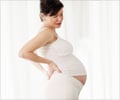Partnership problems and not career planning mainly explain why women are freezing their eggs, recent research finds. Women's lack of stable partnerships with men committed to marriage and parenting appear to be the main concern.

TOP INSIGHT
Research finds that partnership problem with men and not career stops women from having children today.
Behind the claim lie in-depth interviews with 150 women who had chosen to freeze their eggs at fertility clinics in the USA (114 women) and Israel (36 women). The data from the interviews were qualitatively analyzed and eventually indicated ten pathways which led the women to egg freezing.
The majority of women in the study (85%) were without partners at the time of egg freezing, reflecting six different life circumstances - being single, divorced or divorcing, broken up from a relationship, working overseas, single mother by choice or circumstance, and career planning. Choosing elective egg freezing for planning a career was the least common of these six pathways, even among women who worked for companies with egg freezing insurance coverage.
Those with partners (15%) faced four different life circumstances - with a man not ready to have children, in a relationship too new or uncertain, with a partner who refuses to have children, or with a partner with his own multiple partners. "Most of the women had already pursued and completed their educational and career goals," Inhorn explained, "but by their late 30s had been unable to find a lasting reproductive relationship with a stable partner. This is why they turned to egg freezing."
With only one exception - freezing eggs before working overseas - the pathways varied little among American and Israeli women in the study. Inhorn acknowledged, however, that these ten pathways to elective egg freezing may not be the same for women in other countries, but the shared responses of women in the two countries studied does suggest some generalizability.
Now, with such a dramatic increase in the numbers choosing to freeze their eggs and clinics offering the service, Inhorn said that "clinicians must be aware of the role that partnership 'troubles' play in the lives of egg freezing patients and make patient-centered care for single women a high priority".
Meanwhile, the clinical outcome of elective egg freezing remains unclear, with few women so far thawing and using their eggs. Patrizio suggests from available data that in general it seems advisable for women under 35 years old to cryopreserve 10-12 eggs and for women over 35 around 20 eggs to have a reasonable chance of later pregnancy.
Source-Eurekalert
 MEDINDIA
MEDINDIA




 Email
Email








